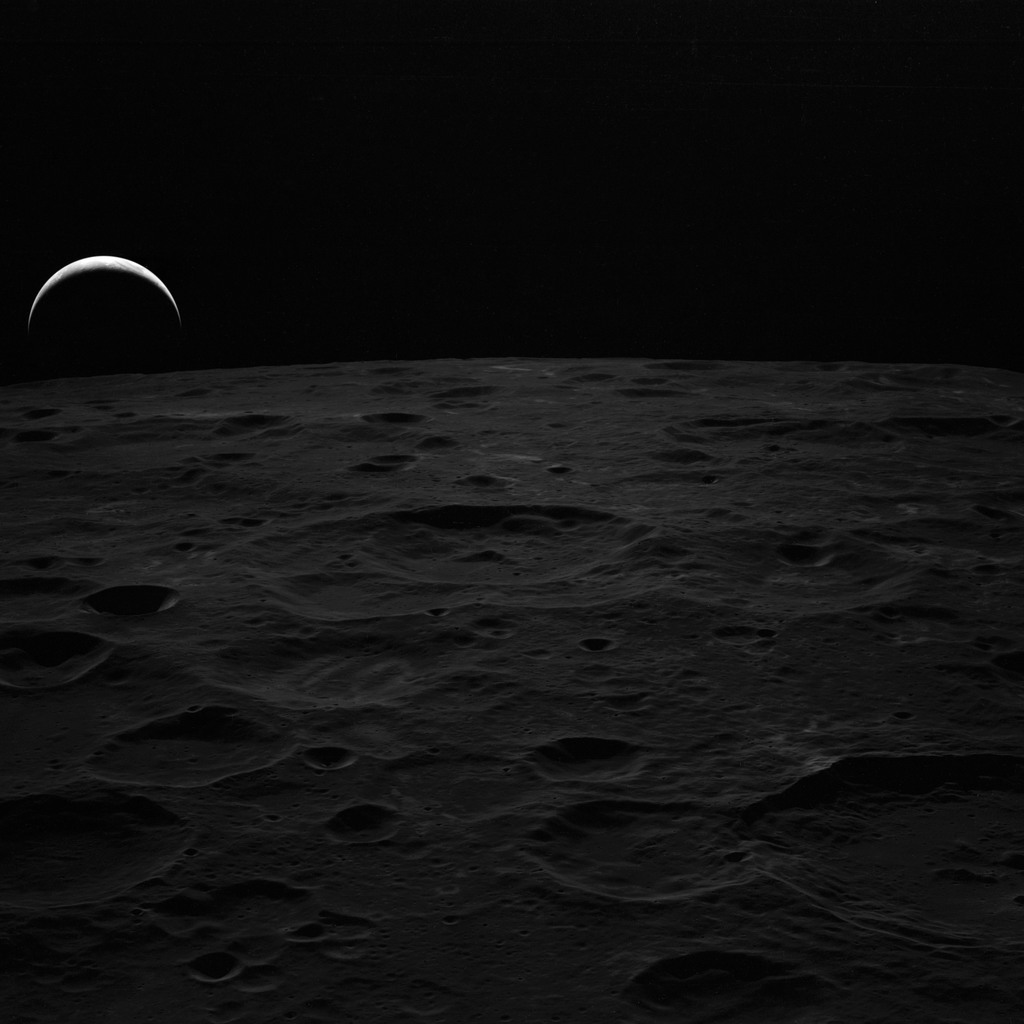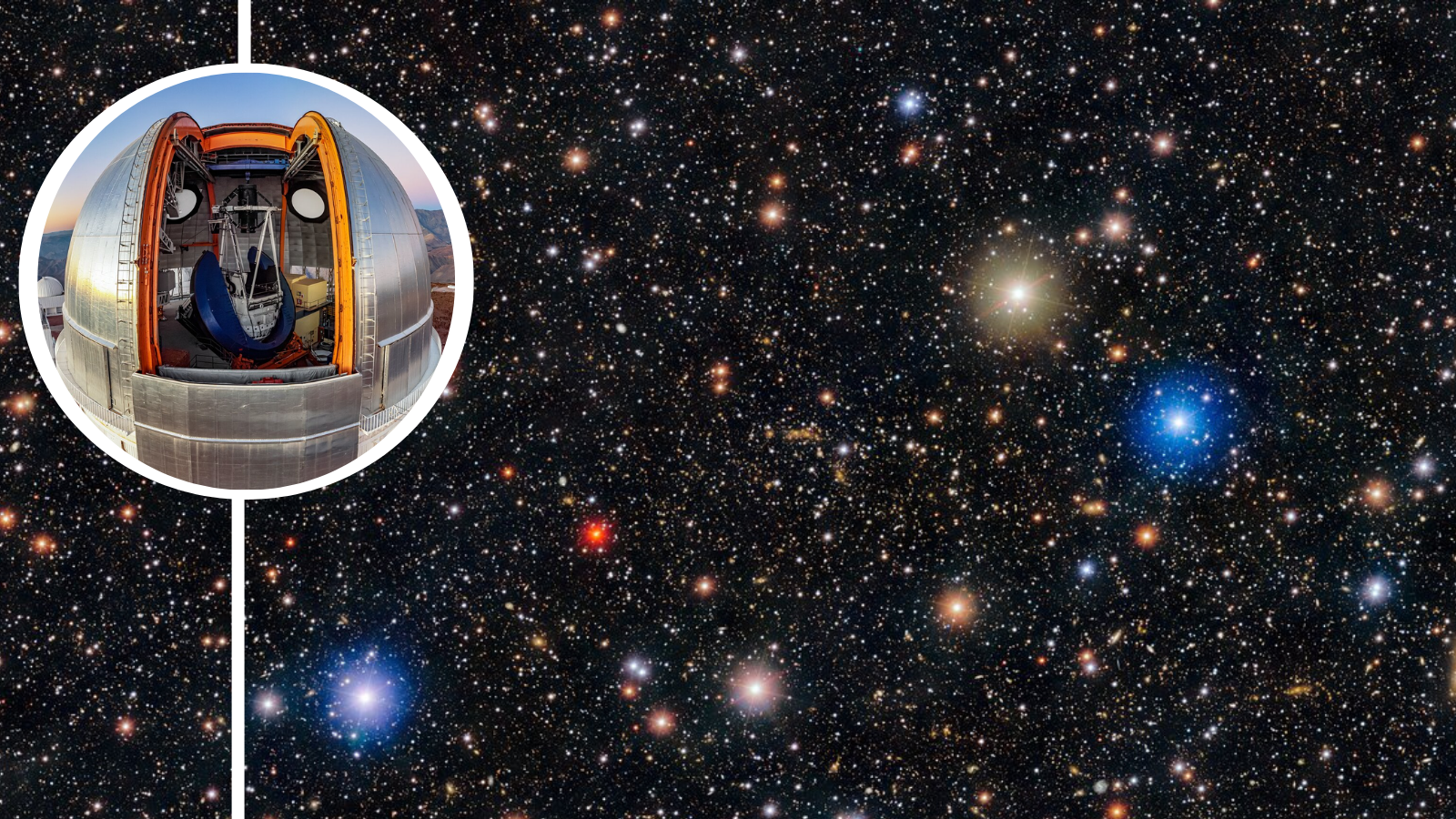Earth from space: 'Overview effect' could help troubled country, astrophysicist Neil deGrasse Tyson says

Neil deGrasse Tyson thinks we could all use a strong dose of the overview effect right now.
"Amid the turbulence of a pandemic & racedemic, I offer this reflection on what Earth looks like from space, as only an Apollo astronaut can tell it," the astrophysicist and science communicator, who directs the Hayden Planetarium at the American Museum of Natural History in New York City, said via Twitter on Saturday (May 30).
Tyson attached a screengrab of the following quote by moonwalker Edgar Mitchell, the lunar module pilot on NASA's Apollo 14 mission in 1971: "You develop an instant global consciousness, a people orientation, an intense dissatisfaction with the state of the world and a compulsion to do something about it. From out there on the moon, international politics look so petty. You want to grab a politician by the scruff of the neck and drag him a quarter of a million miles out and say, 'Look at that, you son of a bitch.'"
Related: Lunar legacy: 45 Apollo moon mission photos
Amid the turbulence of a pandemic & racedemic, I offer this reflection on what Earth looks like from space, as only an Apollo astronaut can tell it. pic.twitter.com/CMfjTry6RIMay 30, 2020
Mitchell was far from alone in experiencing this phenomenon, dubbed the "overview effect." Most astronauts who have seen our planet from space — even those who venture no farther than low Earth orbit, where the International Space Station (ISS) resides — report being changed profoundly by the experience.
Indeed, some people have expressed hope that the space tourism industry will help foster goodwill on Earth and a greater conservation ethic by dramatically increasing the overview effect's reach. And the British company Sen aims to give those of us stuck on terra firma a taste of the real deal with its "EarthTV" satellites, which will stream high-definition views of our planet from orbit.
I’ve had a lot on my mind — I hope you have, too. pic.twitter.com/CbvlFF1nY6June 2, 2020
But the overview effect is not a panacea, stressed Bill Nye, the former TV "Science Guy" and current CEO of the nonprofit Planetary Society. We need to take action if we hope to right the systemic wrongs that the protests spurred by the tragic May 25 death of George Floyd at the hands of Minneapolis police have highlighted, Nye said.
Breaking space news, the latest updates on rocket launches, skywatching events and more!
"Normally, as CEO of The Planetary Society, with a crew having arrived safely at the International Space Station after a historic launch, I’d be going on about this wonderful achievement: Look at Earth from space. There are no boundaries. Humankind is one species, etc," Nye said via Twitter yesterday (June 1). (The mission he referred to here is SpaceX's first-ever crewed liftoff, the Demo-2 test flight to the ISS, which launched on Saturday.)
"Despite all the remarkable achievements of humankind, we are failing each other. We must address the very real problem of systemic violence toward Black people. The horrific murder of George Floyd and the countless others before him makes this issue more urgent than ever," Nye added. "We need to listen to those who have been speaking out against racism — for longer than we have been listening. We need diverse leadership, reformed policing and better educational and economic opportunities for the oppressed. We need these things because black lives matter. As I, and all of us here at The Planetary Society, reflect on these events, we vow to do our part to fight racism as we help advance space science and exploration for all of Earth’s citizens."
Definitely not right that the other officers were charged with nothing. What message does this send in general to officers who stand by while another does wrong? #JusticeForGeorgeJune 1, 2020
SpaceX founder and CEO Elon Musk also weighed in via Twitter, saying it isn't right that Derek Chauvin is the only Minneapolis police officer to be charged so far in Floyd's death. (Several other officers were on the scene and did not appear to try to stop Chauvin or help Floyd.)
"Definitely not right that the other officers were charged with nothing. What message does this send in general to officers who stand by while another does wrong? #JusticeForGeorge," Musk tweeted yesterday (June 1), just two days after Demo-2 lifted off.
- The view from space could change the world, Virgin Galactic says
- In photos: SpaceX's historic Demo-2 test flight with astronauts
- Edgar Mitchell: Sixth man on the moon
Mike Wall is the author of "Out There" (Grand Central Publishing, 2018; illustrated by Karl Tate), a book about the search for alien life. Follow him on Twitter @michaeldwall. Follow us on Twitter @Spacedotcom or Facebook.
OFFER: Save 45% on 'All About Space' 'How it Works' and 'All About History'!
For a limited time, you can take out a digital subscription to any of our best-selling science magazines for just $2.38 per month, or 45% off the standard price for the first three months.

Michael Wall is a Senior Space Writer with Space.com and joined the team in 2010. He primarily covers exoplanets, spaceflight and military space, but has been known to dabble in the space art beat. His book about the search for alien life, "Out There," was published on Nov. 13, 2018. Before becoming a science writer, Michael worked as a herpetologist and wildlife biologist. He has a Ph.D. in evolutionary biology from the University of Sydney, Australia, a bachelor's degree from the University of Arizona, and a graduate certificate in science writing from the University of California, Santa Cruz. To find out what his latest project is, you can follow Michael on Twitter.

